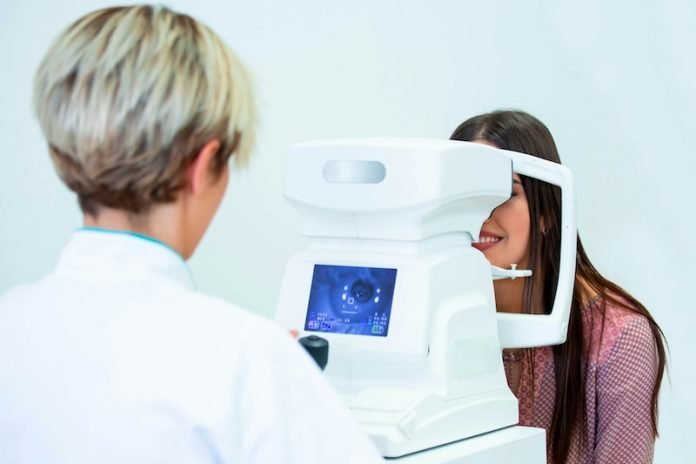
Diabetic retinopathy is a serious eye condition that affects people with diabetes.
It occurs when high blood sugar levels cause damage to the blood vessels in the retina, the part of the eye that senses light and sends images to your brain.
This damage can lead to vision problems and, in severe cases, blindness. Despite its severity, many people are unaware of how diabetic retinopathy develops and how it can be prevented.
This review will discuss the common causes of diabetic retinopathy, explaining them in plain language for easy understanding.
How Does Diabetic Retinopathy Develop?
At its core, diabetic retinopathy is about damage to the retina’s tiny blood vessels. Over time, high blood sugar levels can cause these vessels to weaken, bulge, and leak fluid into the surrounding eye tissues.
In more advanced stages, the body tries to compensate by growing new blood vessels. Unfortunately, these new vessels are often fragile and leak easily, which can worsen the situation, leading to more significant vision problems.
The Stages of Diabetic Retinopathy
Diabetic retinopathy typically progresses through four stages:
Mild Nonproliferative Retinopathy: Small areas in the blood vessels of the retina balloon (microaneurysms) and begin to leak.
Moderate Nonproliferative Retinopathy: As the disease progresses, blood vessels that nourish the retina may swell and distort, losing their ability to transport blood.
Severe Nonproliferative Retinopathy: More blood vessels become blocked, depriving several areas of the retina of their blood supply. At this stage, the signals sent to the body cause the retina to grow new blood vessels.
Proliferative Retinopathy: This is the most advanced stage. New blood vessels grow along the inside surface of the retina and into the vitreous gel, the fluid that fills the eye. Unfortunately, these new blood vessels are fragile and can leak and bleed easily.
Risk Factors and Causes
While diabetes is the primary risk factor for developing diabetic retinopathy, several other factors can accelerate the disease’s progression or increase the severity:
- Duration of Diabetes: The longer you have diabetes, the greater the risk of developing diabetic retinopathy. Nearly everyone with type 1 diabetes and more than 60% of those with type 2 diabetes will develop some form of diabetic retinopathy after 20 years.
- Poor Control of Blood Sugar Levels: High blood sugar levels increase the risk of developing diabetic retinopathy, and can also make it progress faster.
- High Blood Pressure: High blood pressure is another risk factor that can aggravate eye damage if you have diabetes.
- High Cholesterol: High cholesterol levels can lead to additional blockages in blood vessels, including those in the eye.
- Pregnancy: Diabetic retinopathy can progress quickly during pregnancy.
Preventing and Managing Diabetic Retinopathy
Managing your diabetes is the most crucial step in preventing diabetic retinopathy. This includes controlling your blood sugar, blood pressure, and cholesterol. Regular diabetic eye exams are essential as well.
An ophthalmologist (eye specialist) can check for signs of deterioration in your eyes and provide treatment options to prevent severe vision loss.
Laser surgery, injectable medications that slow the leakage of blood and fluid in the eye, and vitrectomy (removing the vitreous gel and blood from leaking vessels in the eye) are common treatments for advanced diabetic retinopathy.
Diabetic retinopathy is a common complication of diabetes, but with proper management of the condition and regular eye examinations, its impact can be minimized.
Understanding the causes and progression of diabetic retinopathy can empower individuals with diabetes to take proactive steps toward maintaining their eye health and preserving their vision.
If you care about diabetes, please read studies that pomace olive oil could help lower blood cholesterol, and honey could help control blood sugar.
For more information about diabetes, please see recent studies about Vitamin D that may reduce dangerous complications in diabetes and results showing plant-based protein foods may help reverse type 2 diabetes.
Copyright © 2024 Knowridge Science Report. All rights reserved.



